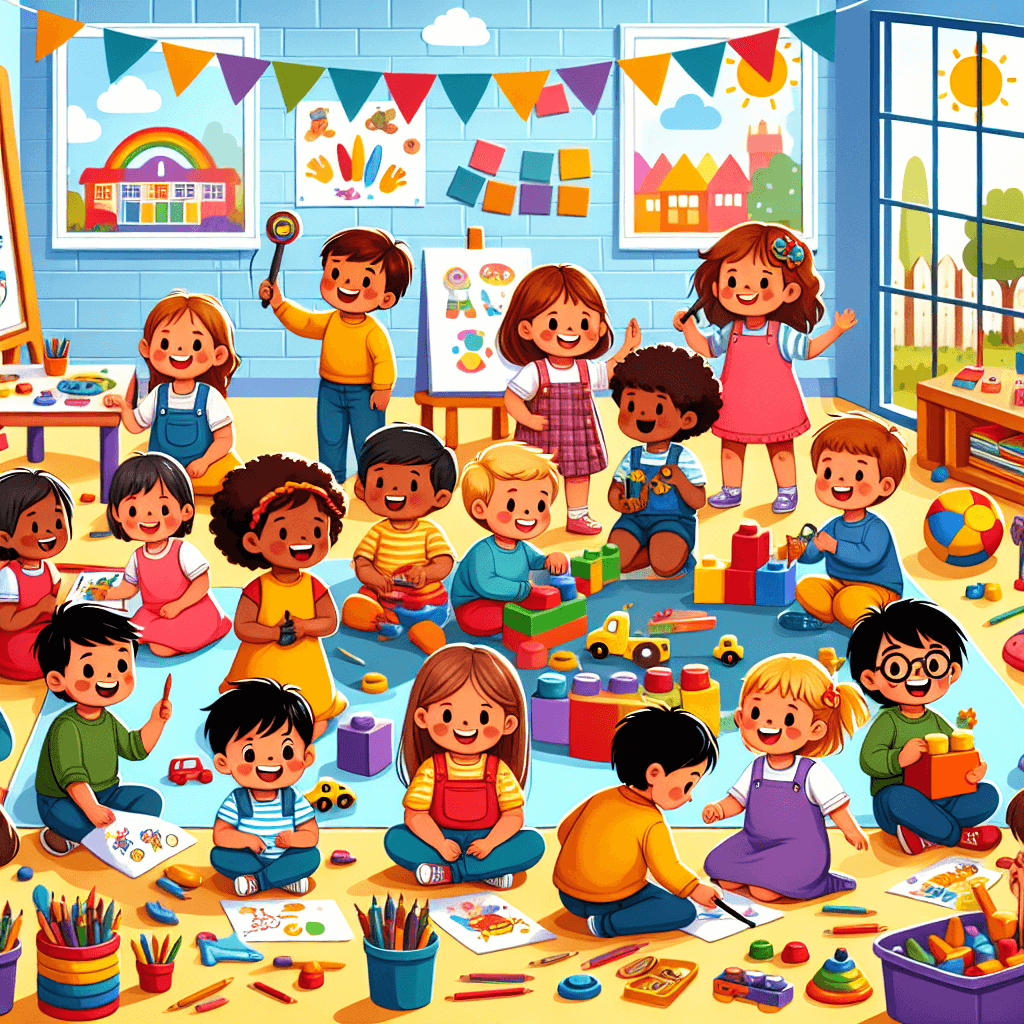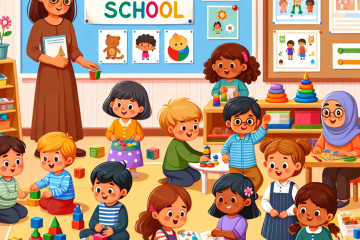Fun Educational Play-Based Activities for Kids Aged 3 to 10
When it comes to educational activities, combining fun and learning is essential to keep young minds engaged. Play-based learning can be a great approach to stimulate cognitive, social, and emotional development in children aged 3 to 10. In this blog post, we will explore several play-based activities designed for different age groups that can be easily incorporated at home or in a classroom setting.
What is Play-Based Learning?
Play-based learning is an educational approach that uses play as a medium for learning. It involves activities that are enjoyable and engaging while promoting various skills, including problem-solving, creativity, and social interaction. Many experts argue that play is essential for healthy brain development and lays the groundwork for lifelong learning.
Benefits of Play-Based Learning
Engaging children in play-based activities has numerous benefits, including:
- Enhanced cognitive development: Activities that require thinking, planning, and problem-solving can boost cognitive skills.
- Social skills: Playtime often involves interaction with peers, helping children develop important social skills.
- Emotional growth: Playing allows children to express their emotions and learn how to manage them effectively.
- Improved physical health: Many play activities involve physical movement, which contributes to overall health and well-being.
Play-Based Activities for Different Age Groups
Activities for Children Aged 3 to 5
For younger children, simplicity is key. Here are some activities that are both fun and educational:
- Building Blocks: Building blocks are excellent for enhancing fine motor skills and cognitive abilities. Encourage your child to construct various shapes and structures, discussing colors, sizes, and patterns.
- Pretend Play: Set up a small kitchen or a doctor’s office to stimulate imagination and role-playing. This kind of play helps children understand the world around them and develop social skills.
- Art and Craft: Simple crafts like finger painting, drawing, and using playdough can foster creativity and fine motor skills. Plus, it’s a fun way to introduce basic concepts like colors and shapes.
Activities for Children Aged 6 to 8
As children grow older, more complex activities can be introduced to stimulate their growing minds:
- Simple Science Experiments: Activities like making a volcano with baking soda and vinegar or observing the growth of a plant over time can spark an interest in science.
- Board Games: Games like “Monopoly Junior” or “Connect 4” are great for developing strategic thinking and numeracy skills.
- Storytelling: Encourage your child to create and narrate their own stories. This not only boosts imagination but also enhances literacy skills.
Activities for Children Aged 9 to 10
For older children, more challenging and skill-specific activities can be highly beneficial:
- STEM Projects: Engaging in activities that involve Science, Technology, Engineering, and Math can be highly educational. Building a simple robot or creating a basic computer program can be both fun and instructive.
- Cooking: Simple cooking activities, like baking cookies or making a sandwich, can teach math (measuring ingredients) and science (understanding how ingredients react).
- Group Sports: Encouraging participation in team sports can promote physical health, teamwork, and social skills.
Tips for Successful Play-Based Learning
To make the most of play-based learning, consider the following tips:
- Be Involved: Participate in the activities with your child. Your involvement can make the experience more enriching and enjoyable for them.
- Create a Safe Environment: Ensure the play area is child-friendly and safe. Remove any hazards that could potentially cause harm.
- Encourage Exploration: Allow your child to take the lead in their play. Encourage them to explore and ask questions without providing all the answers immediately. This fosters curiosity and critical thinking.
- Be Patient: Every child learns at their own pace. Be patient and provide support and encouragement to help them succeed.
Conclusion
Incorporating play-based learning activities for children aged 3 to 10 can significantly enhance their cognitive, social, and emotional development. By choosing age-appropriate activities and being actively involved in their playtime, parents and educators can create a nurturing environment that fosters both fun and learning. Remember, the key is to strike a balance between play and education to keep the young minds engaged and thriving.
Want to learn more? Visit this UNICEF page for additional resources and activity ideas.




